Are you looking for a way to communicate your monthly performance review effectively? Crafting a thoughtful letter can not only showcase your achievements but also highlight areas for growth. In this article, we will guide you through creating a comprehensive performance review letter template that can be tailored to your unique experiences. So, let's dive in and discover how to make your performance reviews meaningful!

Introduction and Purpose
The monthly performance review serves as a crucial assessment tool for evaluating employee contributions and organizational growth. This structured evaluation process allows managers to reflect on individual achievements, set new performance objectives, and identify areas for skill enhancement. Gathering data from various sources, including sales targets, project completion rates, and customer feedback, provides a comprehensive understanding of an employee's performance. This review process not only fosters open communication between supervisors and team members but also aligns personal goals with the company's strategic direction, ensuring a cohesive path toward success.
Summary of Achievements
During the month of October 2023, a notable increase in team productivity was observed, showcasing a 15% rise in completed projects compared to the previous month. A critical project, the "AI Integration" initiative, was successfully launched ahead of schedule on October 10, leading to a 20% improvement in operational efficiency. Additionally, customer satisfaction ratings increased to 92%, attributed to the revamped support protocol implemented on October 5, which reduced response times by 30%. The team also participated in a professional development workshop on October 15, enhancing key skills such as project management and communication, thus fostering a culture of continuous improvement within the organization.
Areas for Improvement
Incorporating constructive feedback in monthly performance reviews can drive employee growth. For instance, a decline in customer satisfaction ratings (measured through Net Promoter Score) can indicate areas needing improvement, such as communication skills or problem-solving abilities. Significant metrics, like a 15% increase in response time for service inquiries, may highlight the necessity for time management training. Assessing project completion rates can reveal inefficiencies, prompting further training in project management methodologies like Agile or Scrum. Additionally, employee engagement surveys may uncover perspectives on teamwork dynamics or leadership effectiveness, suggesting areas to enhance collaboration and morale within the organization.
Goal Setting for Next Month
During the monthly performance review, focusing on goal setting for the upcoming month is crucial. Establishing specific, measurable, achievable, relevant, and time-bound (SMART) objectives can drive progress. For instance, increasing sales revenue by 15% within the next fiscal month will require detailed strategies. Identifying key performance indicators (KPIs) such as customer acquisition rate and conversion rate aids in tracking advancements. Scheduling weekly check-ins can ensure accountability and allow for adjustments based on team feedback. Moreover, fostering collaboration through brainstorming sessions can enhance innovation and problem-solving efforts. Engaging employees in the goal-setting process fosters commitment, leading to a more motivated workforce aimed at achieving organizational success.
Closing Remarks and Encouragement
During the monthly performance review, the closing remarks emphasize the importance of individual contributions towards team goals. Acknowledgment of achievements, such as completing significant projects or surpassing sales targets, fosters motivation. Encouragement to set future objectives can be expressed, highlighting professional growth opportunities within the organization. Emphasizing the value of collaboration and communication among team members further strengthens interpersonal relationships. The commitment to continuous improvement is integral, urging team members to seek feedback and embrace challenges ahead.

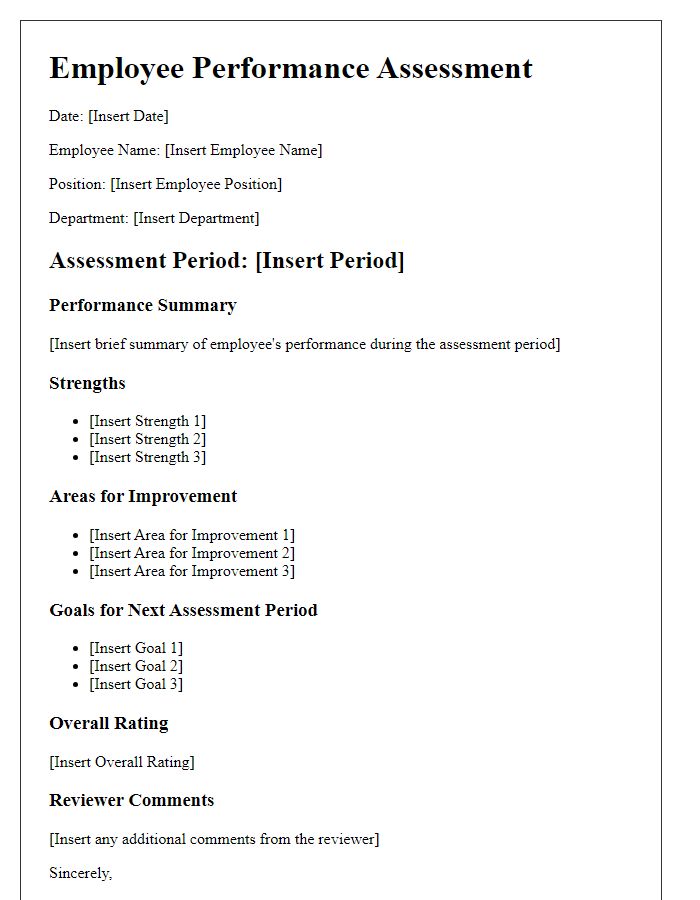
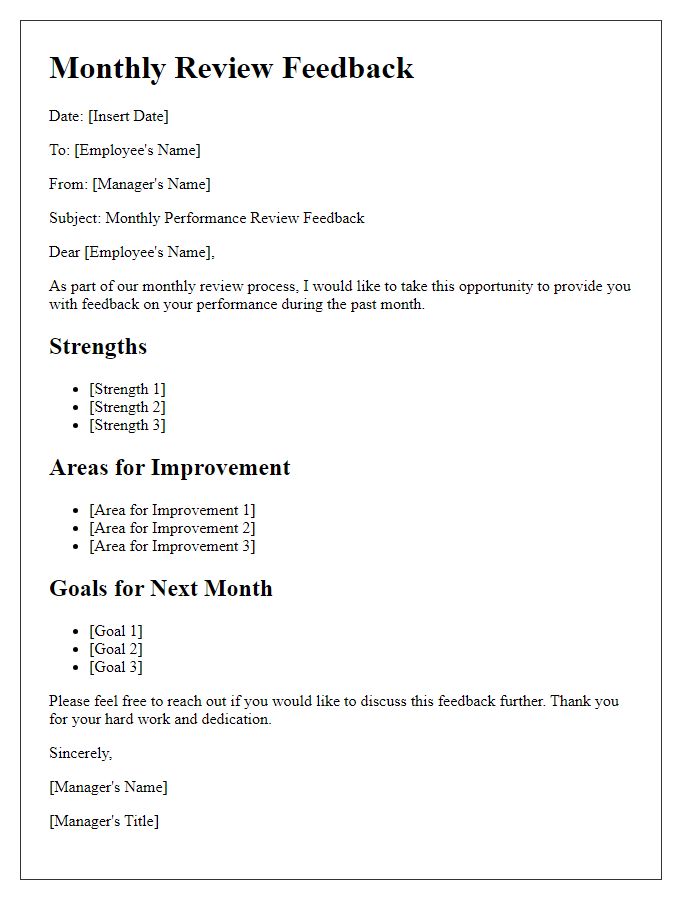
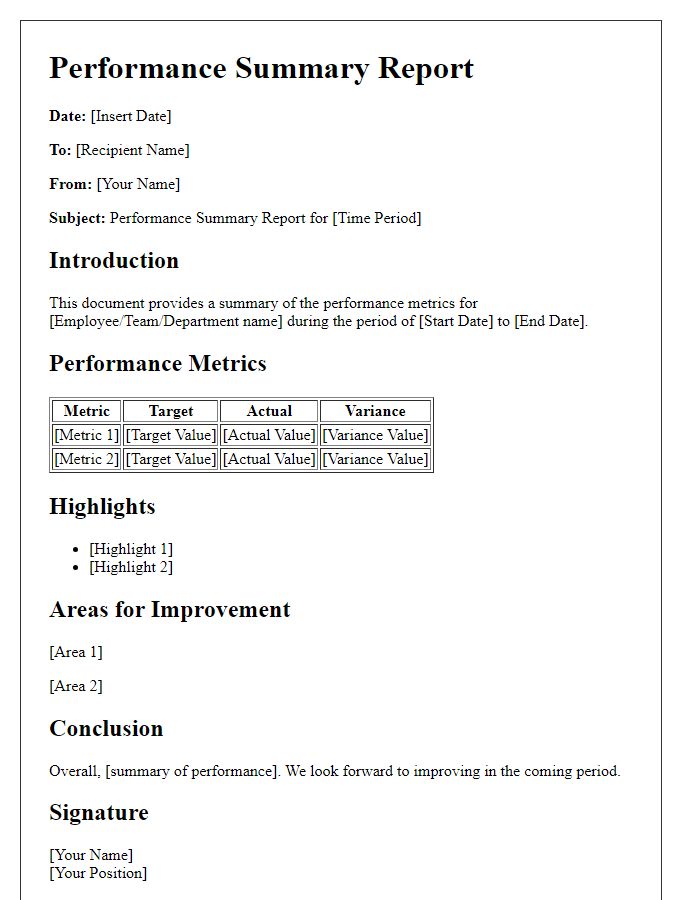
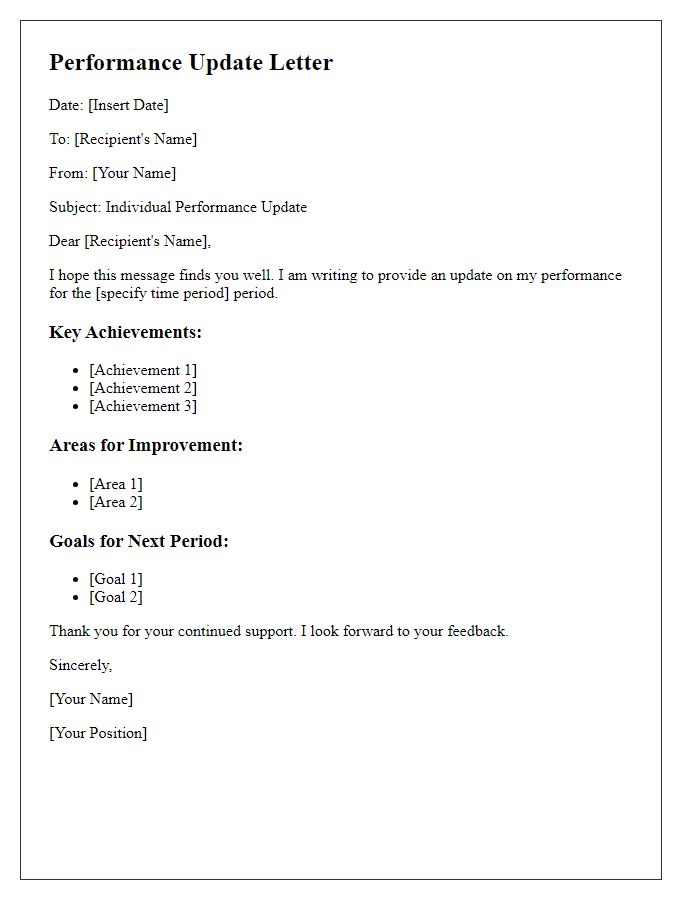
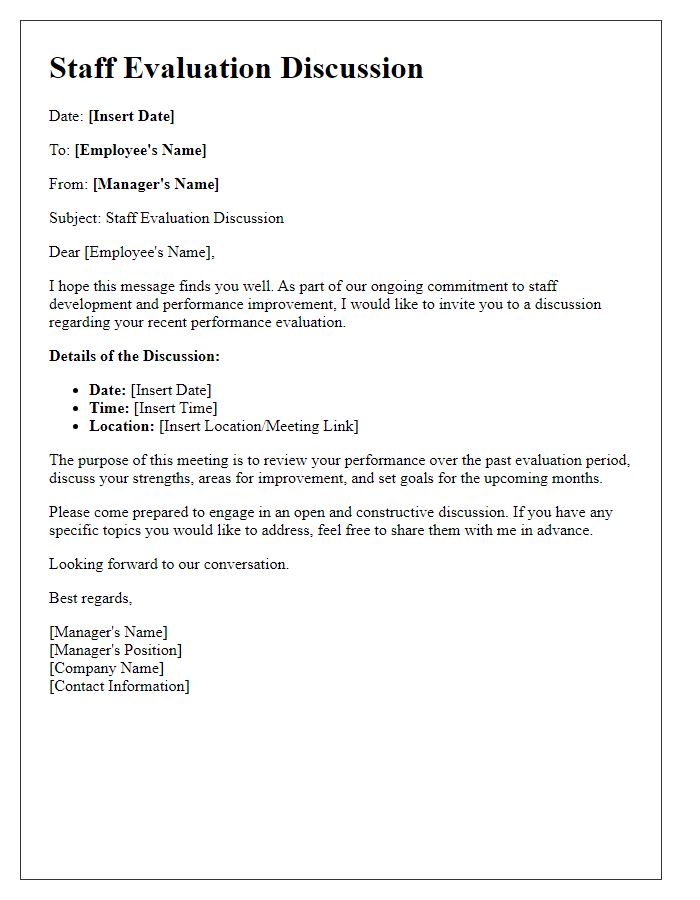
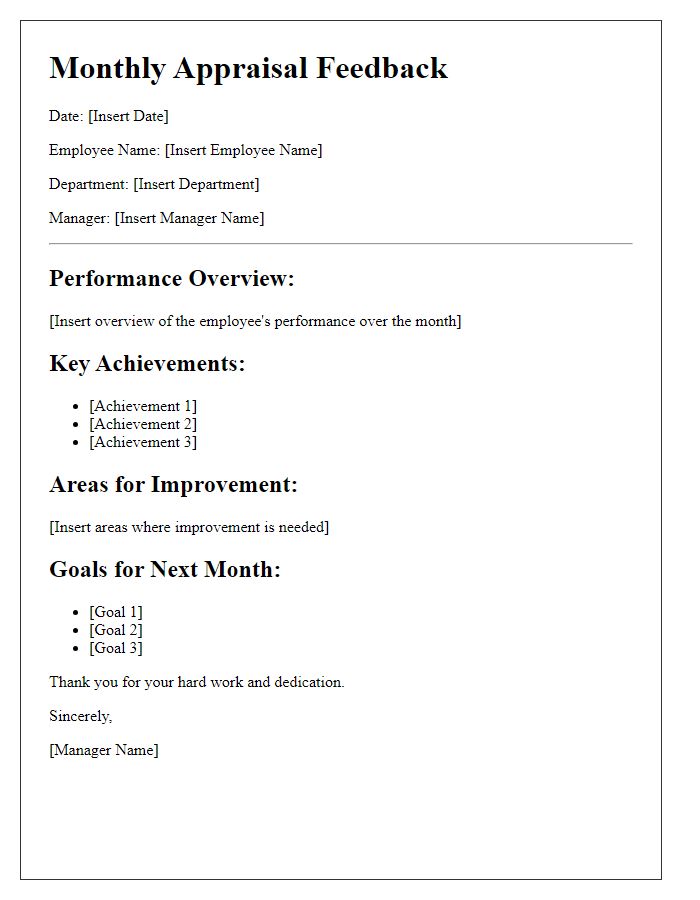
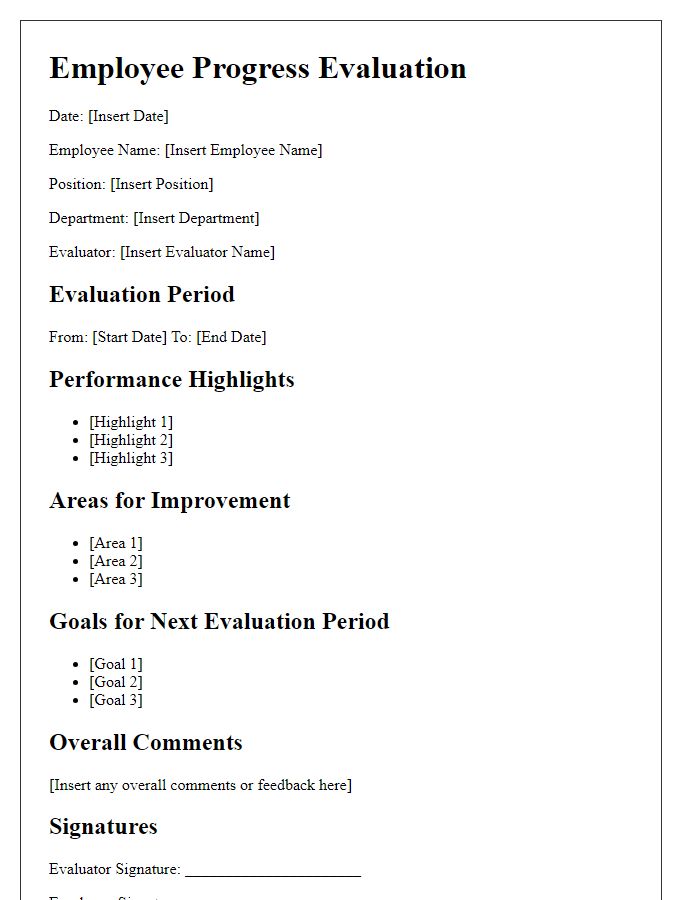
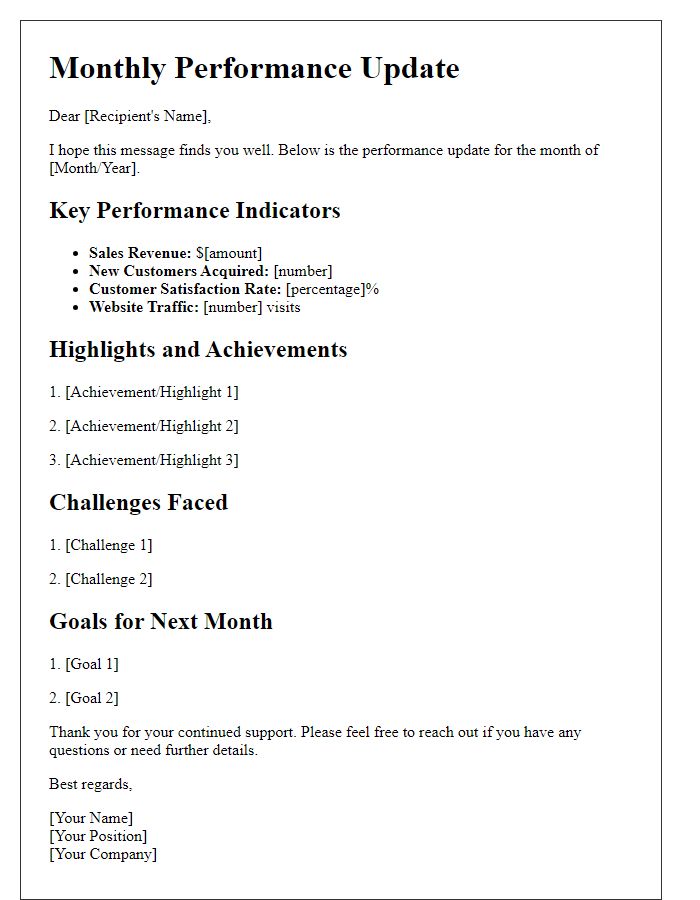
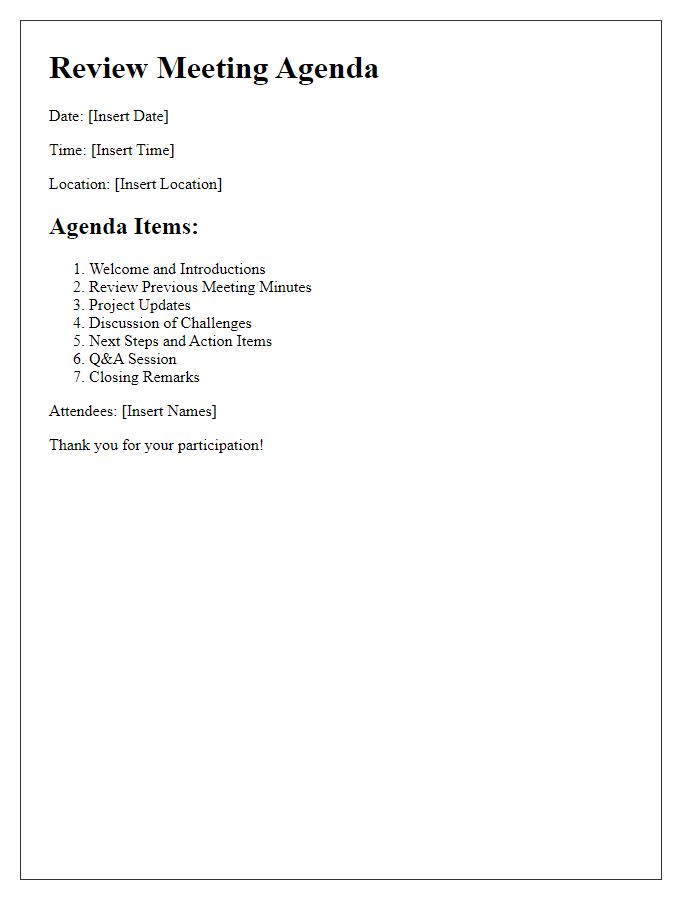


Comments